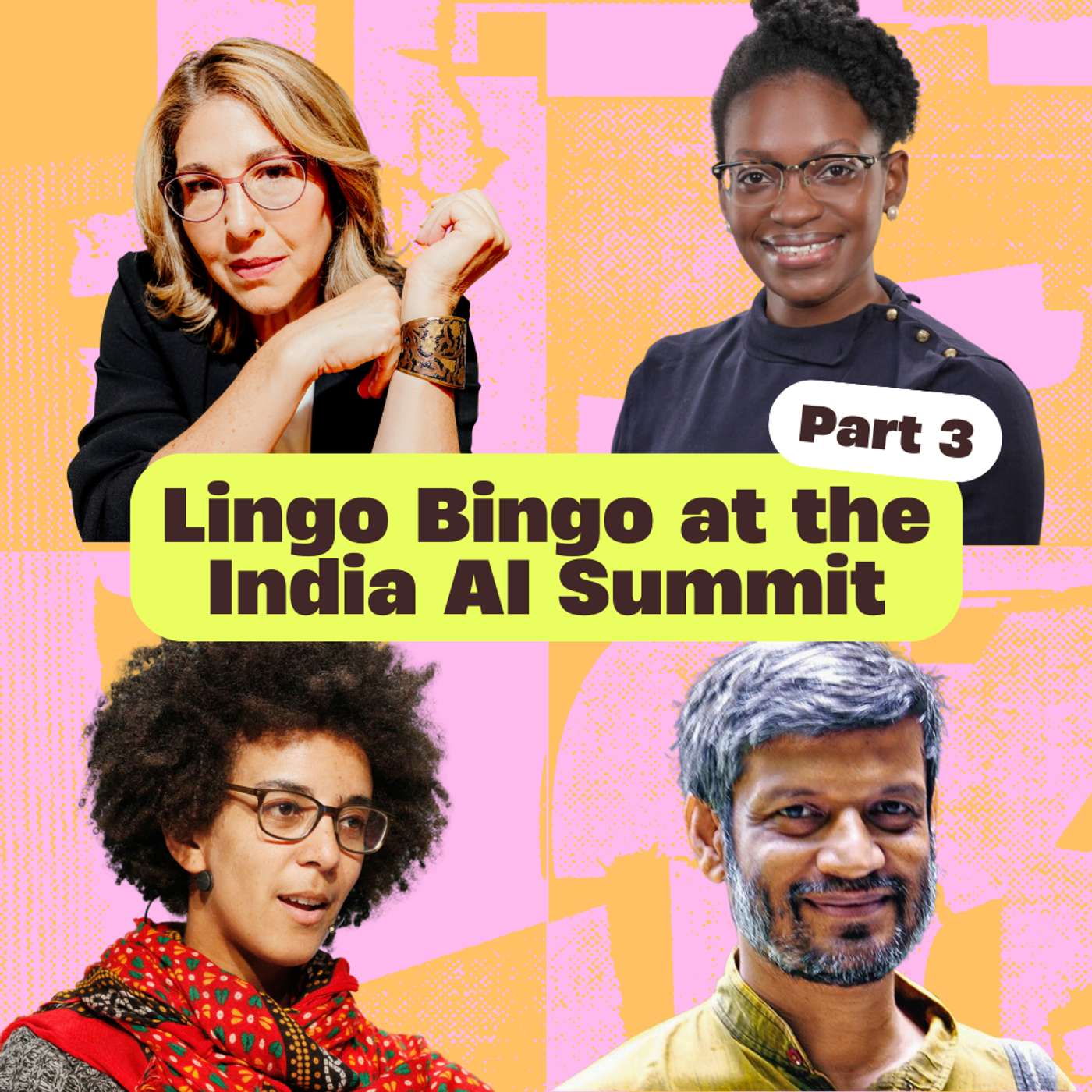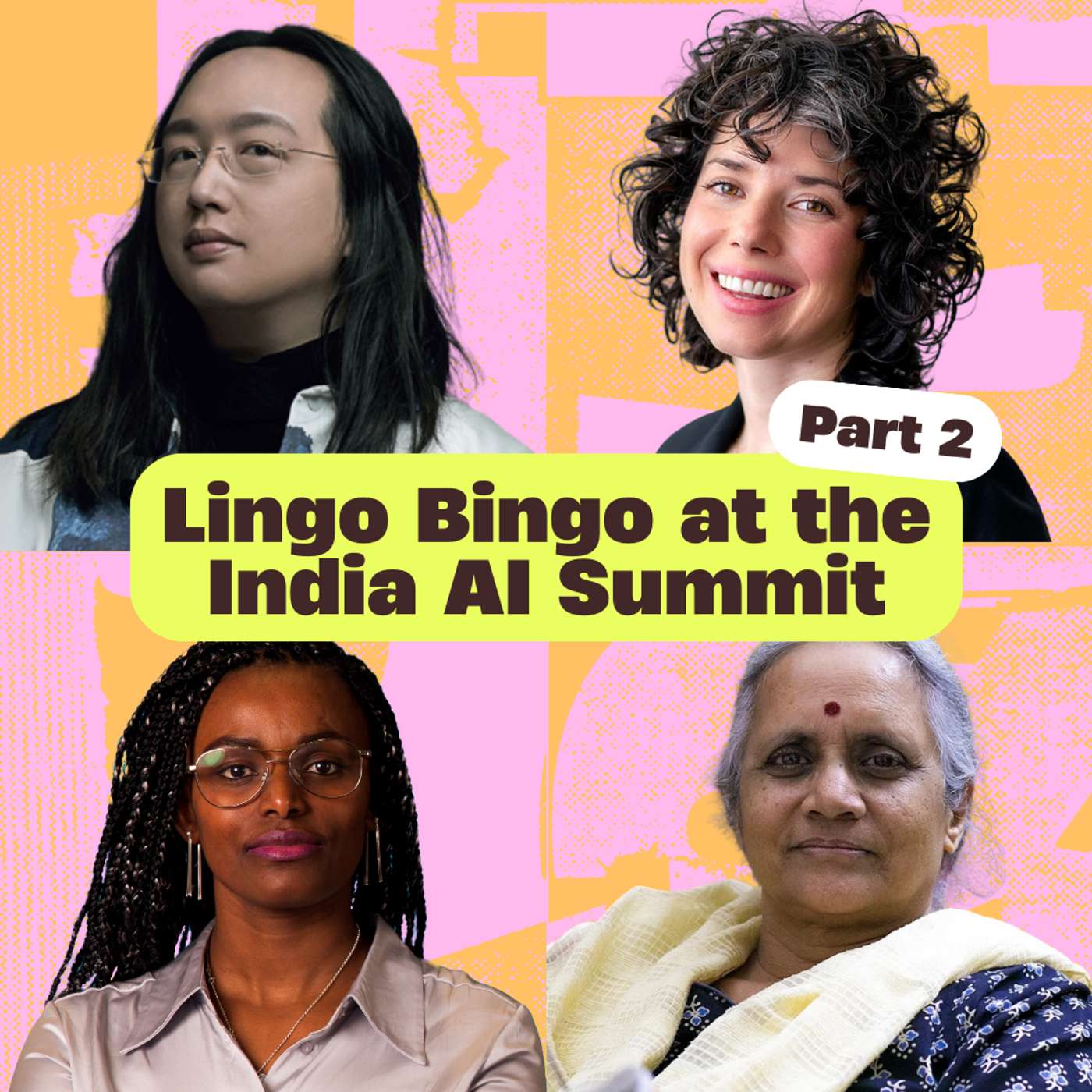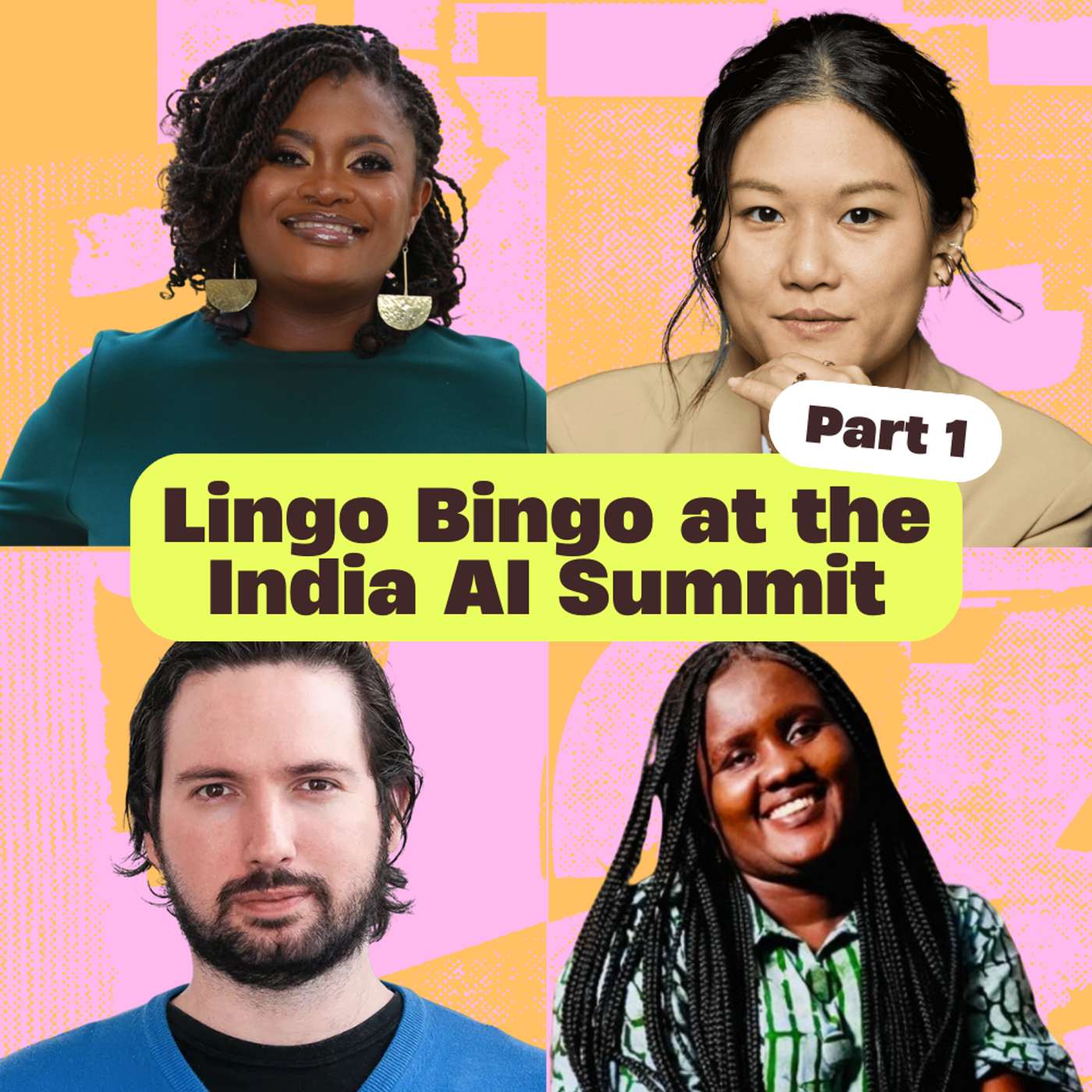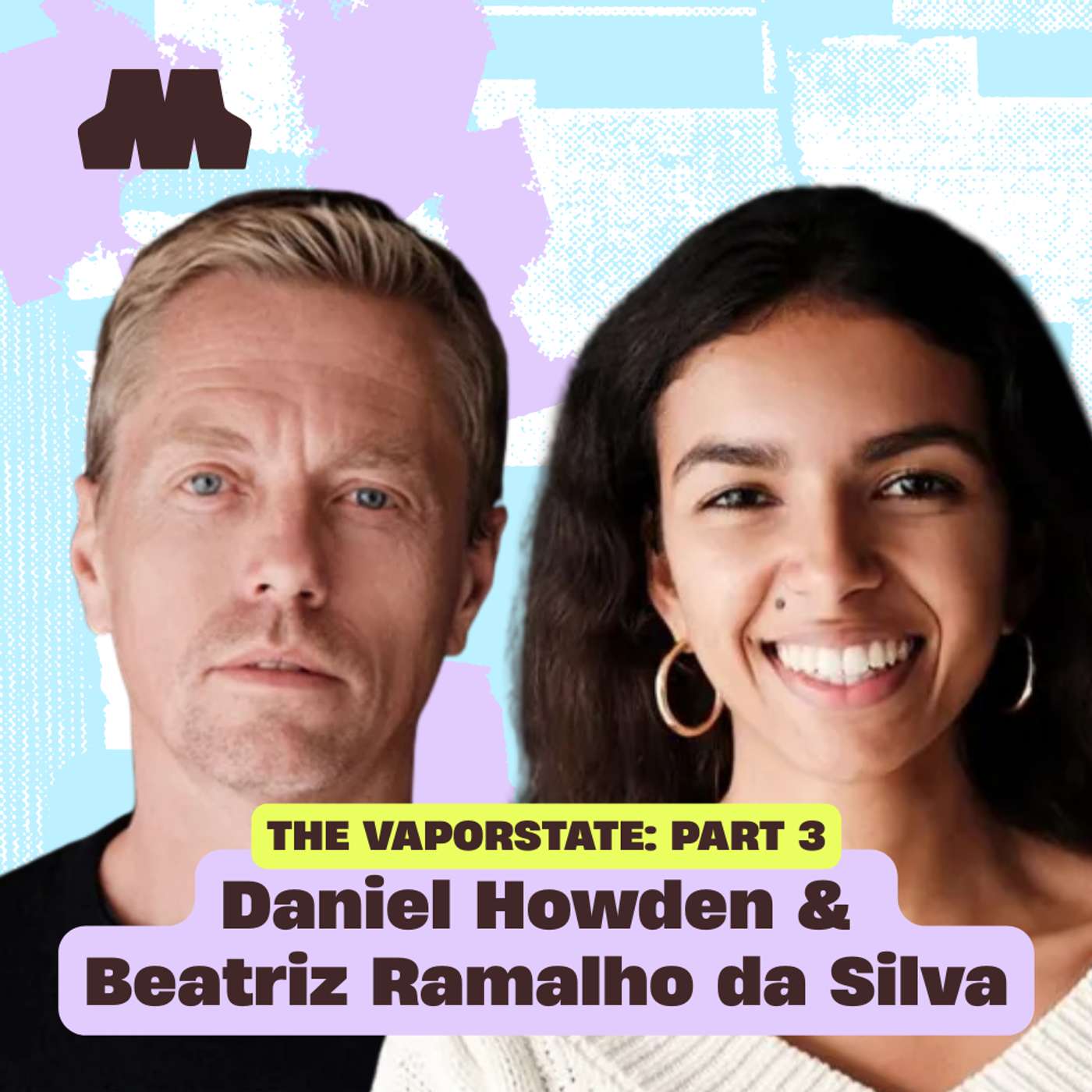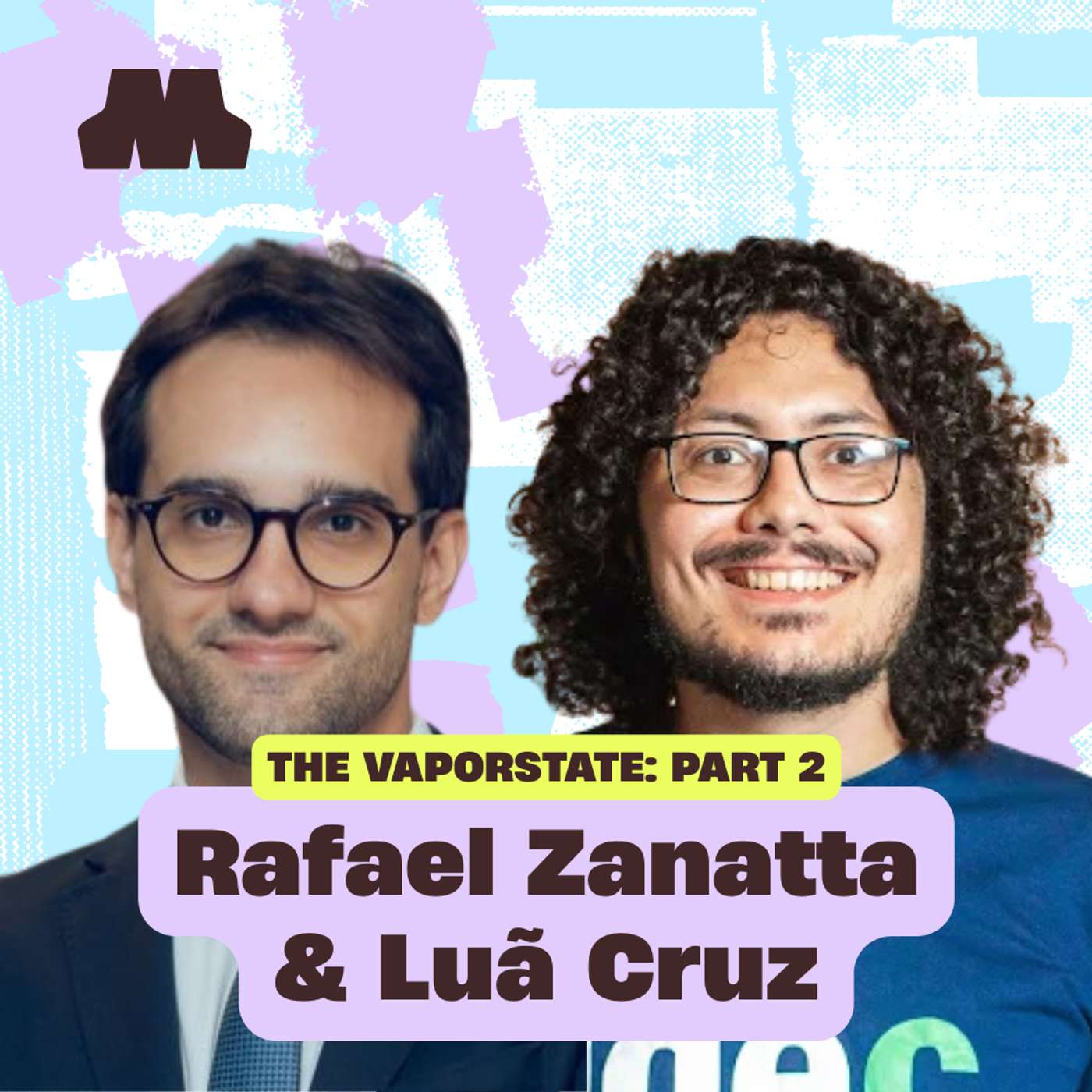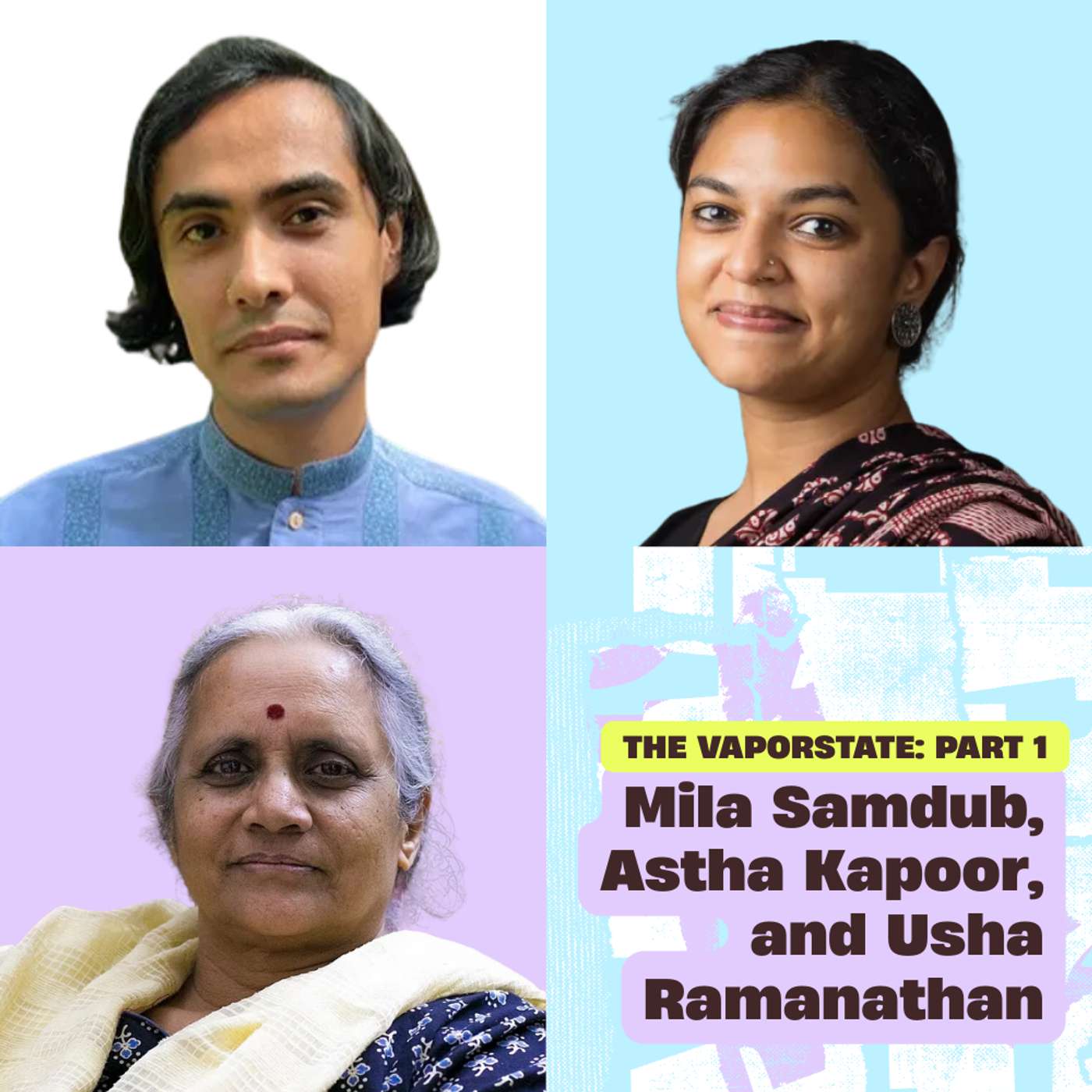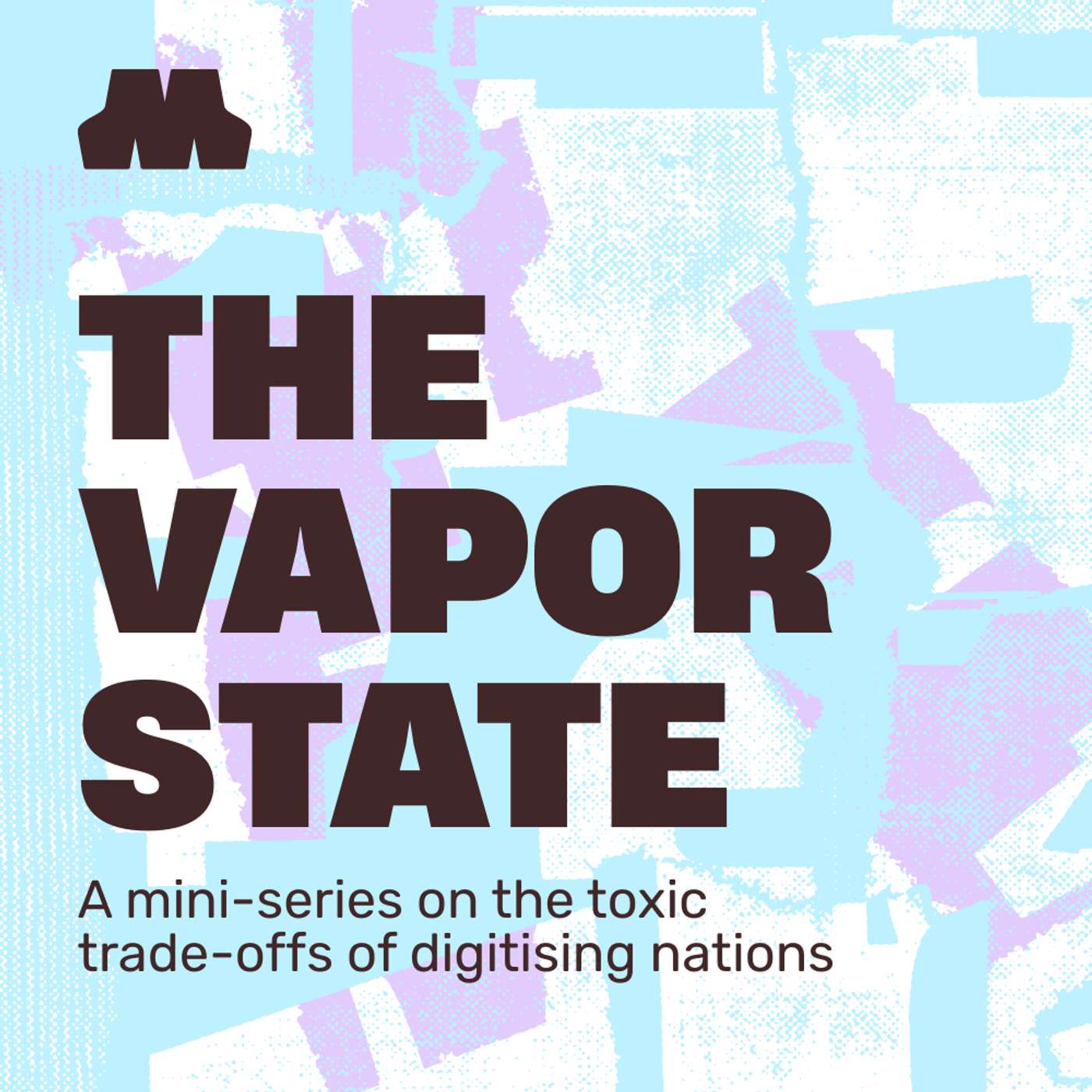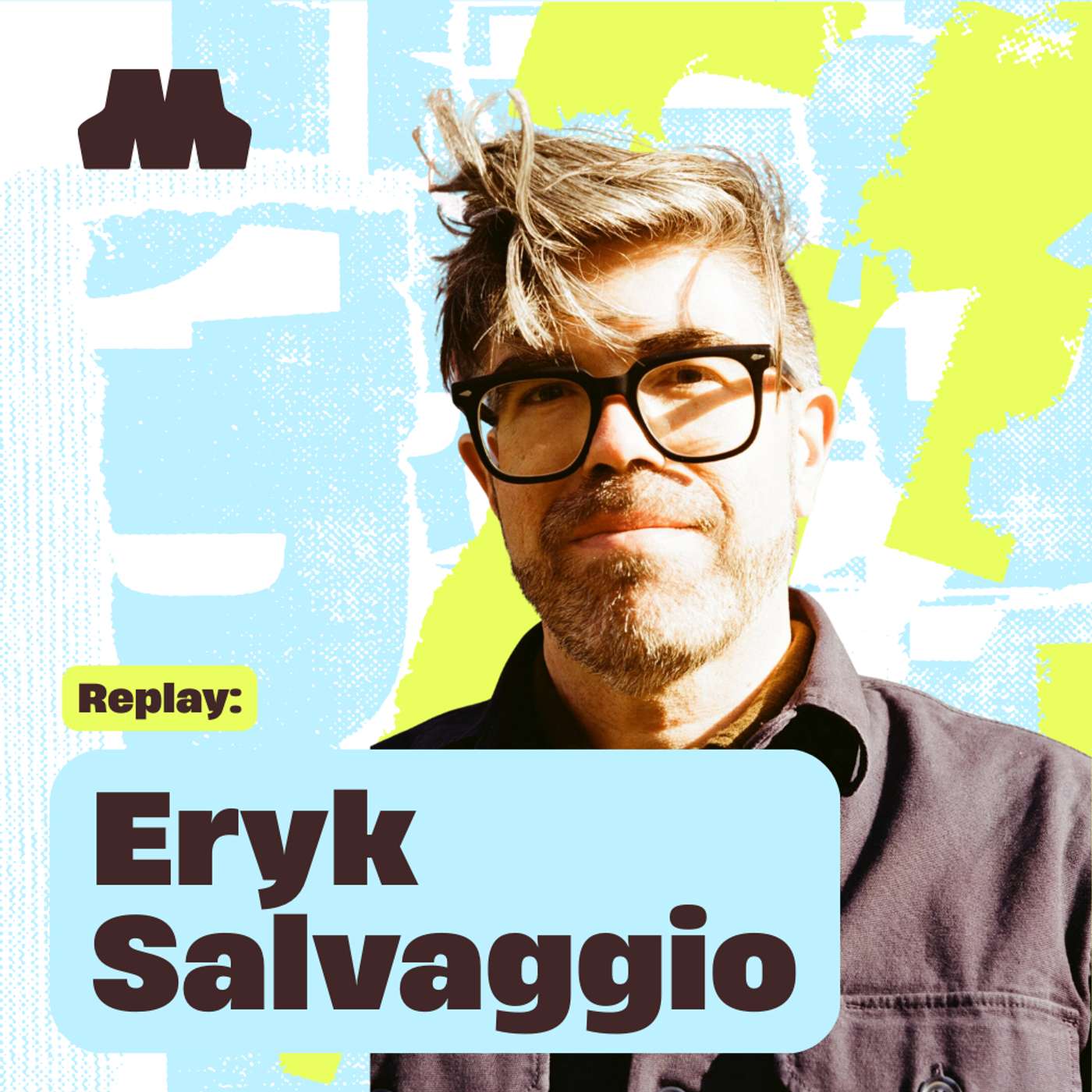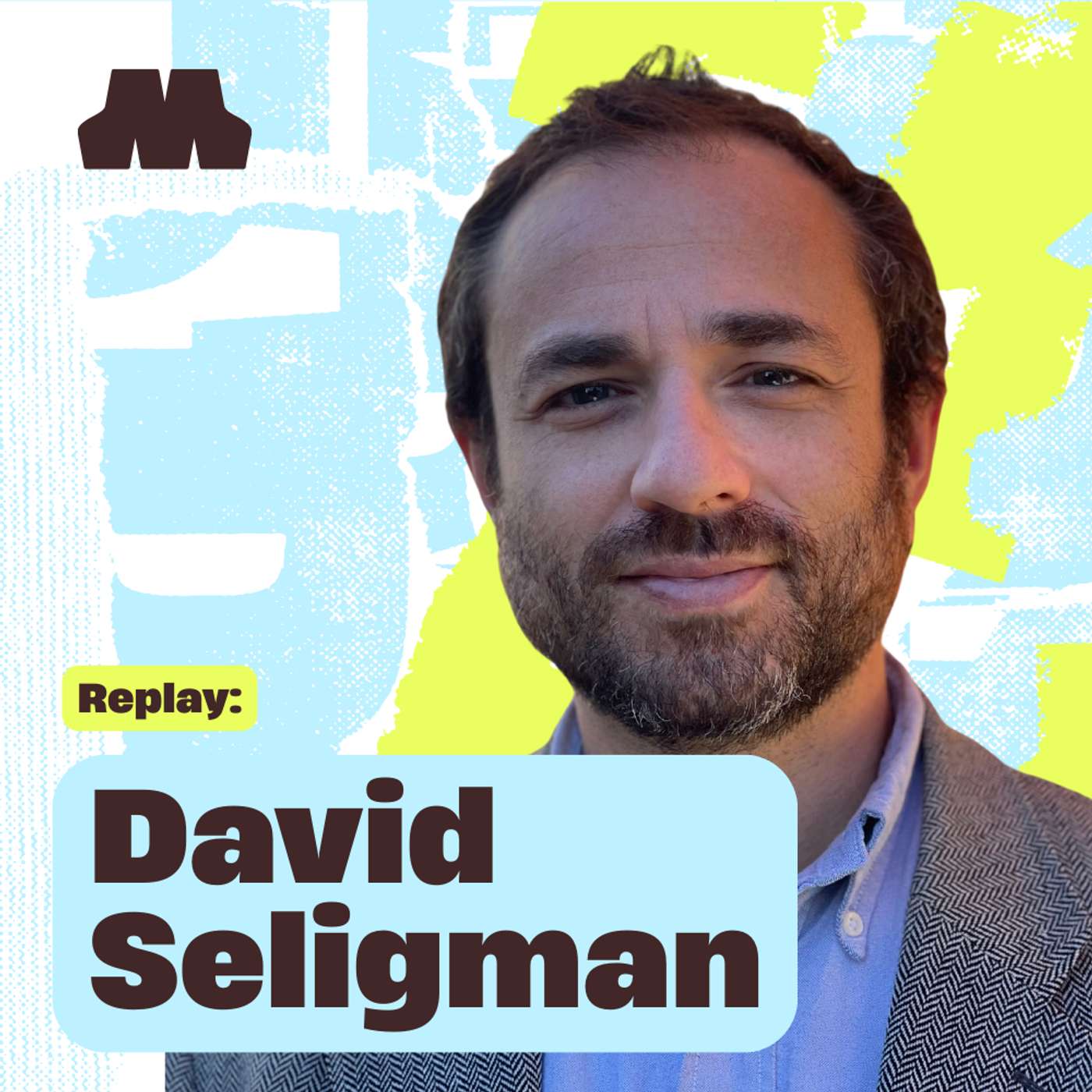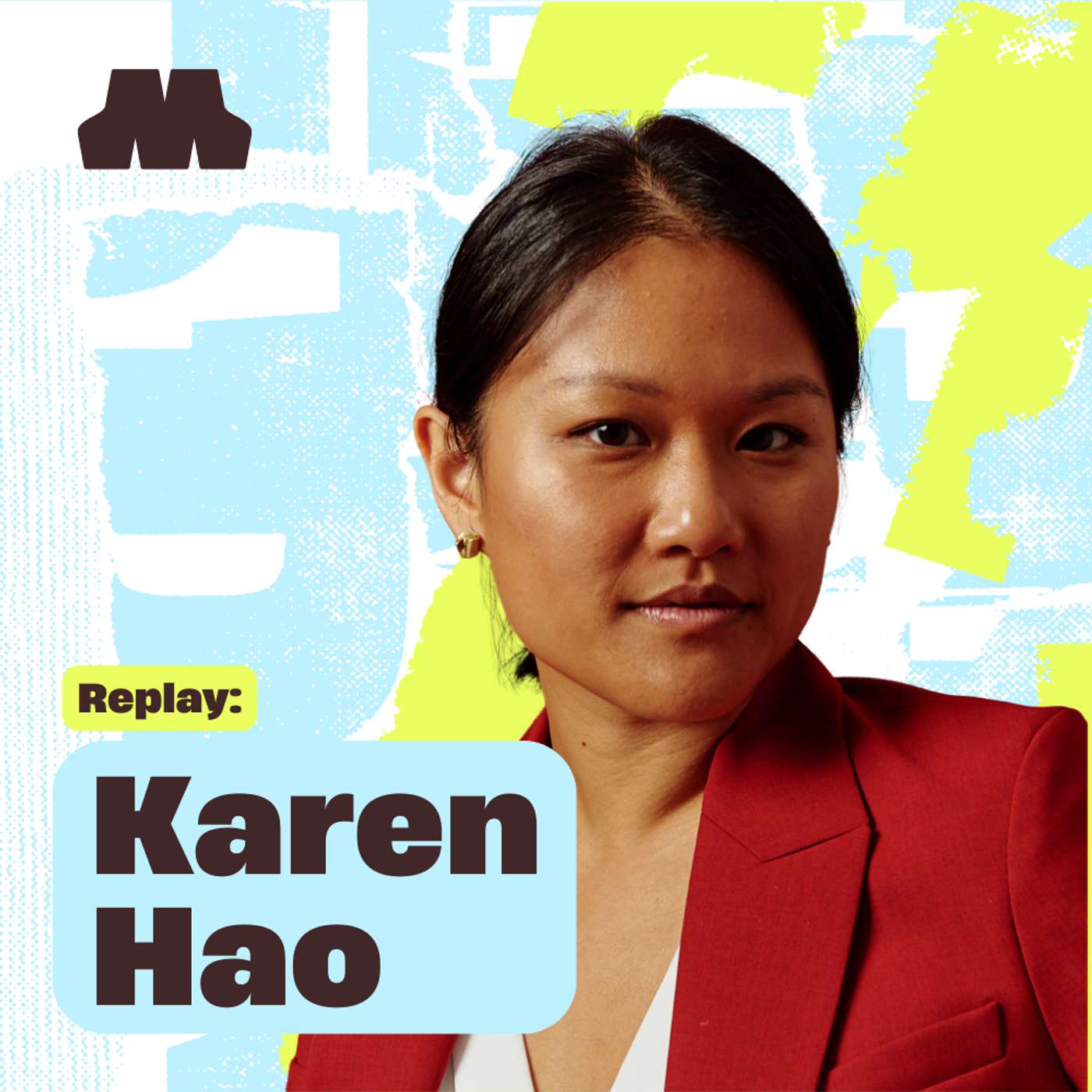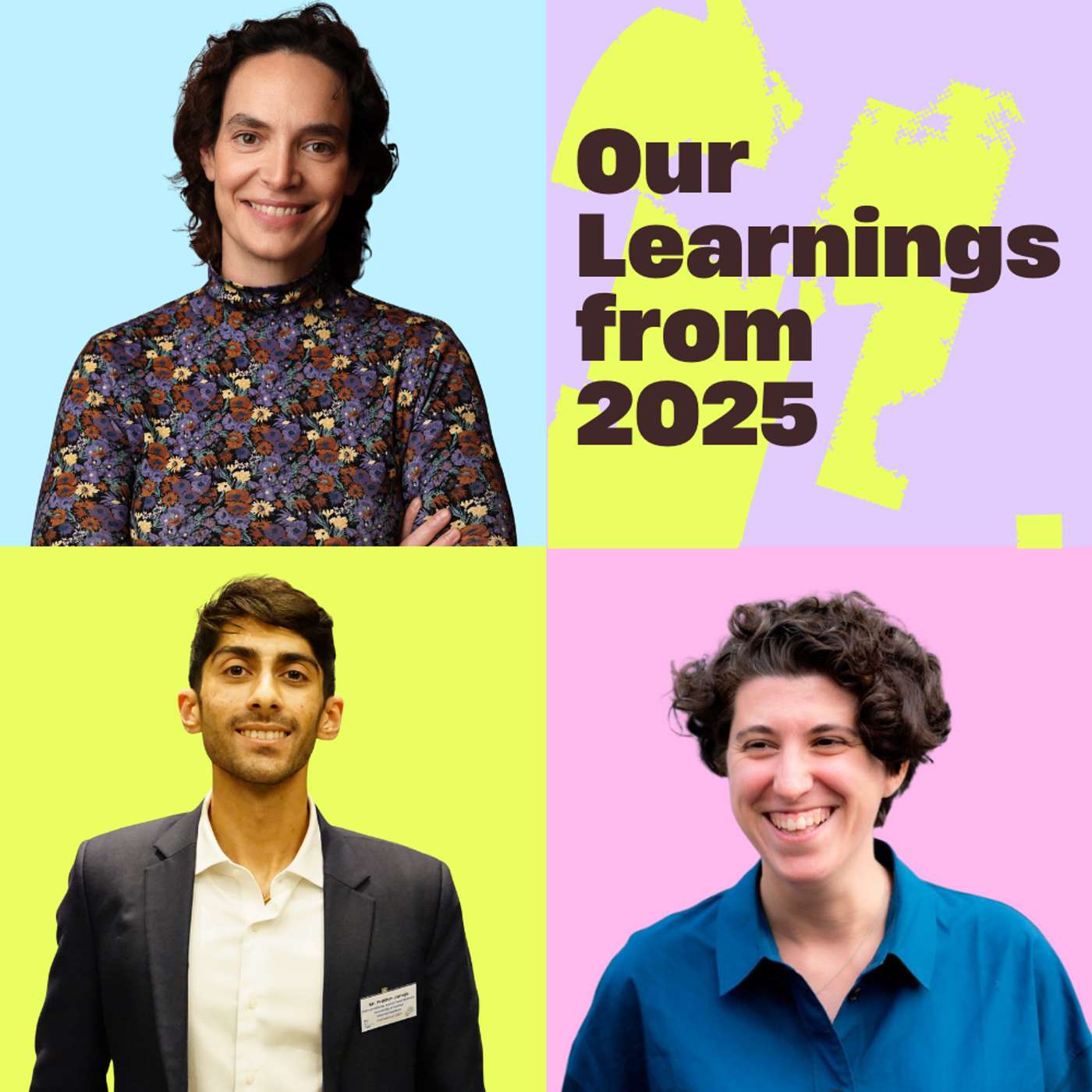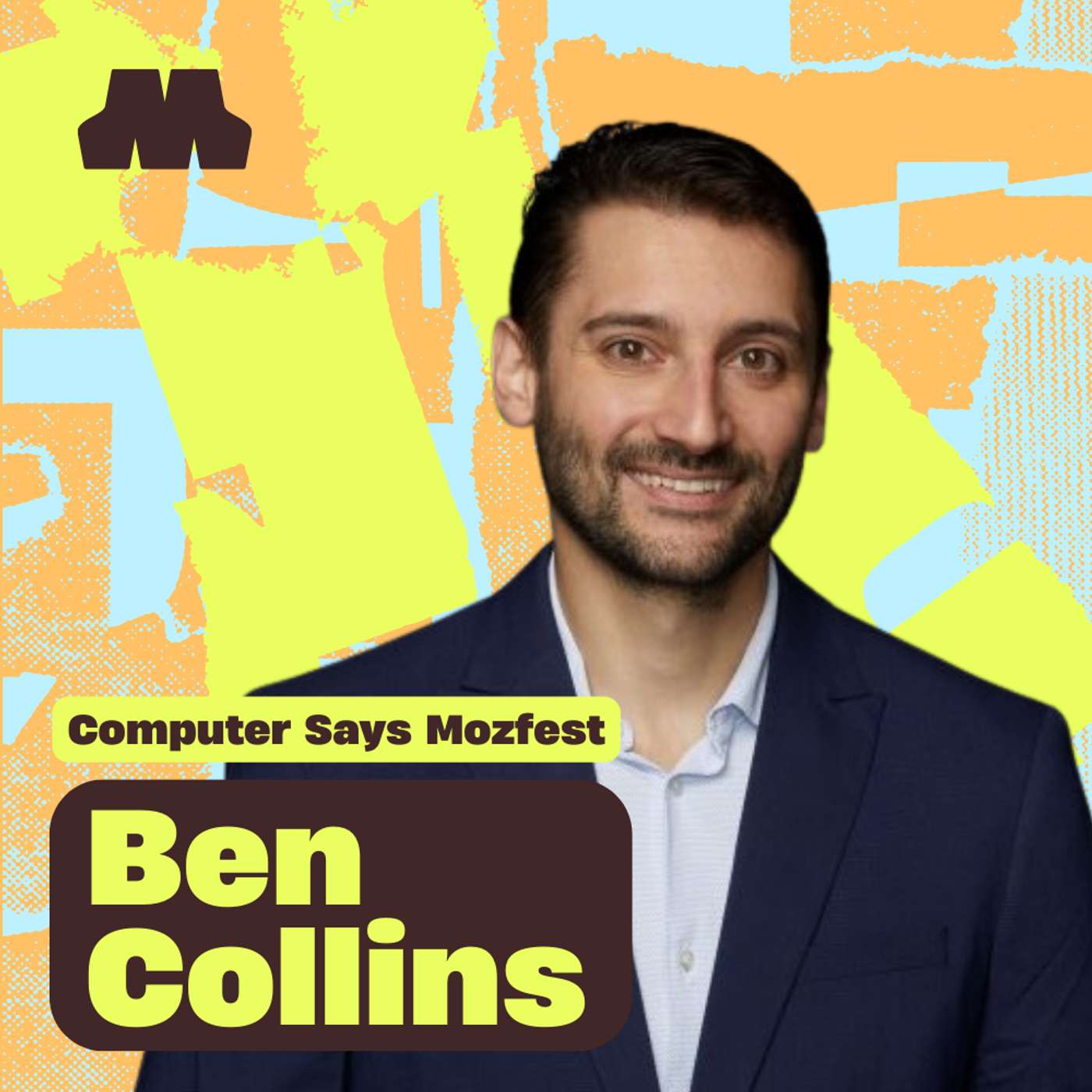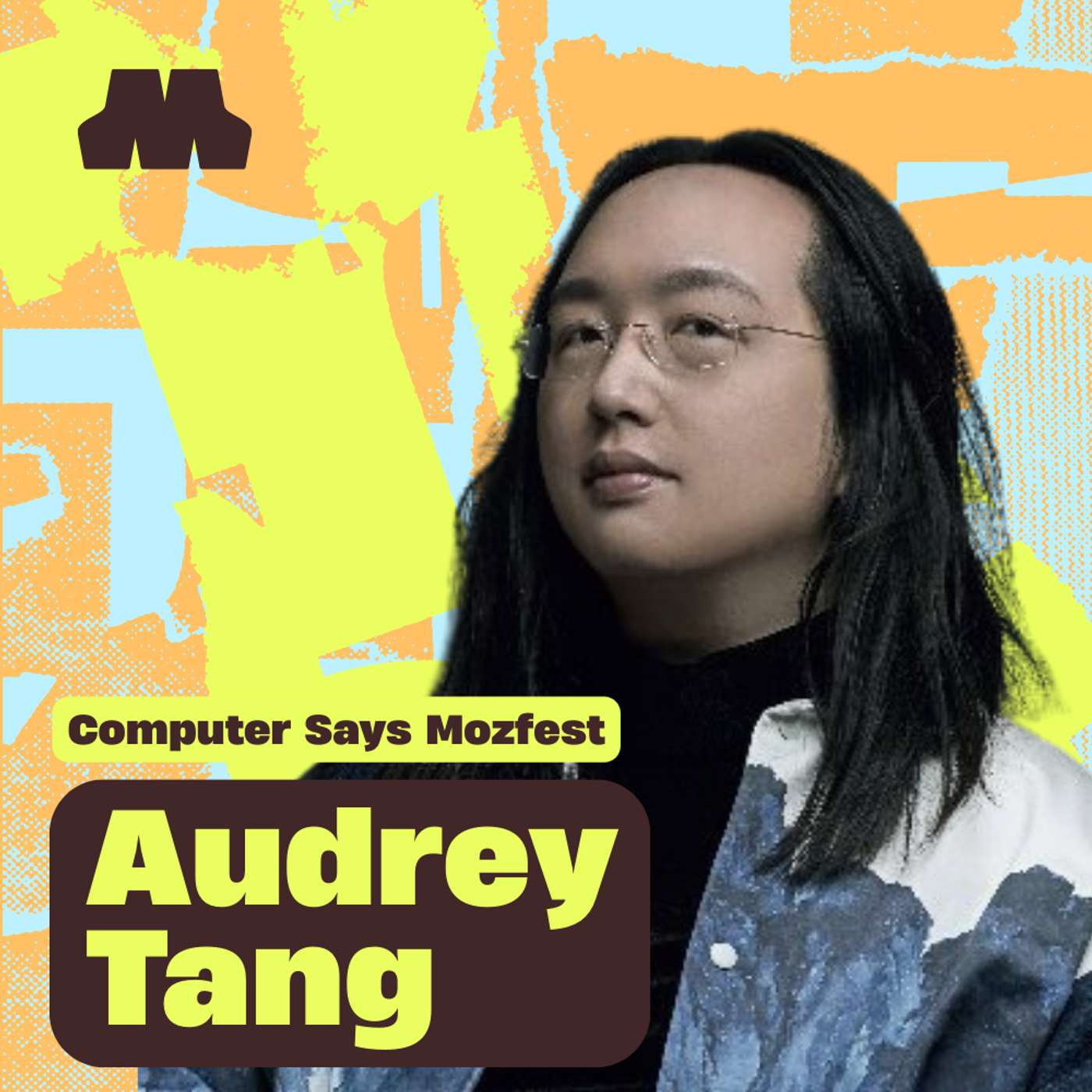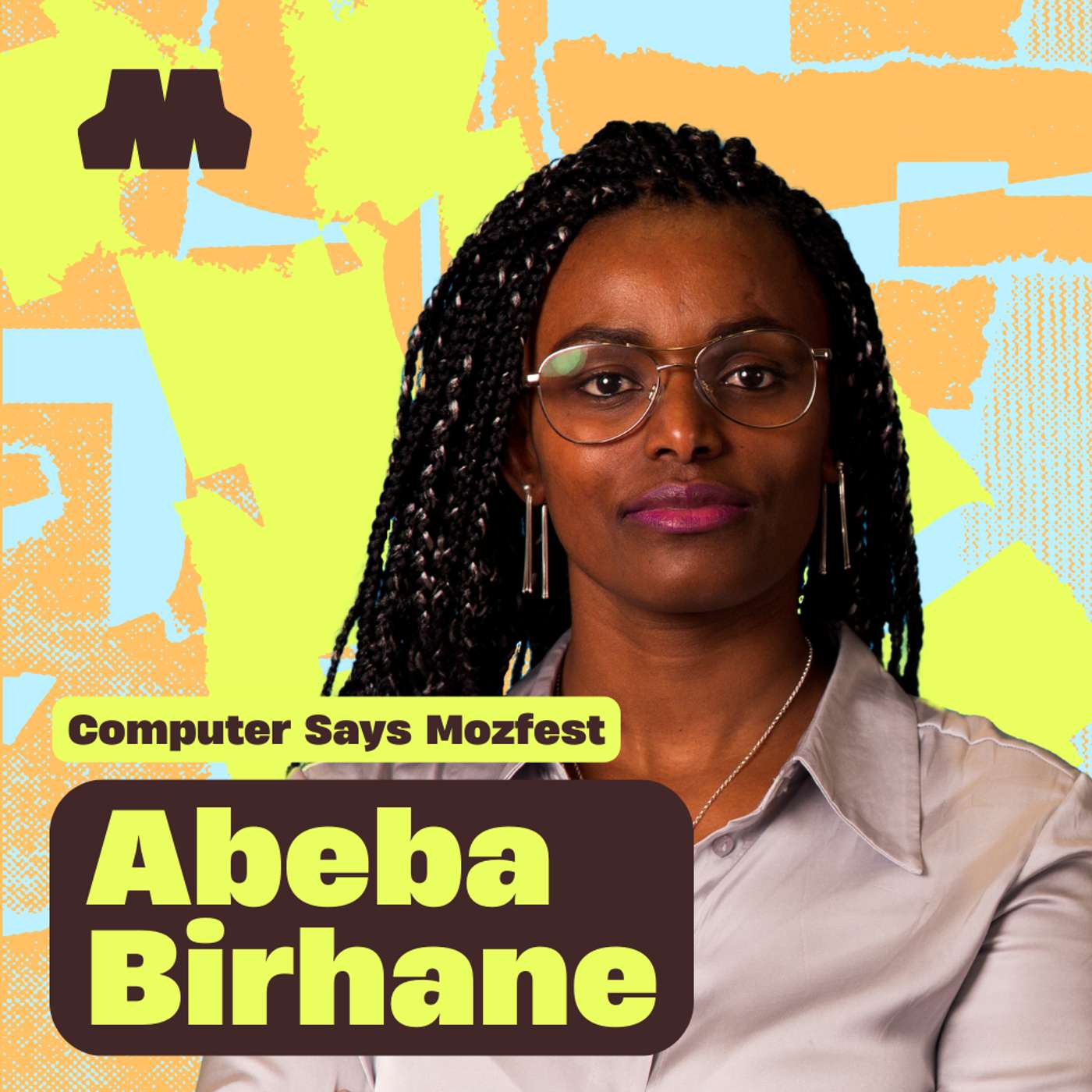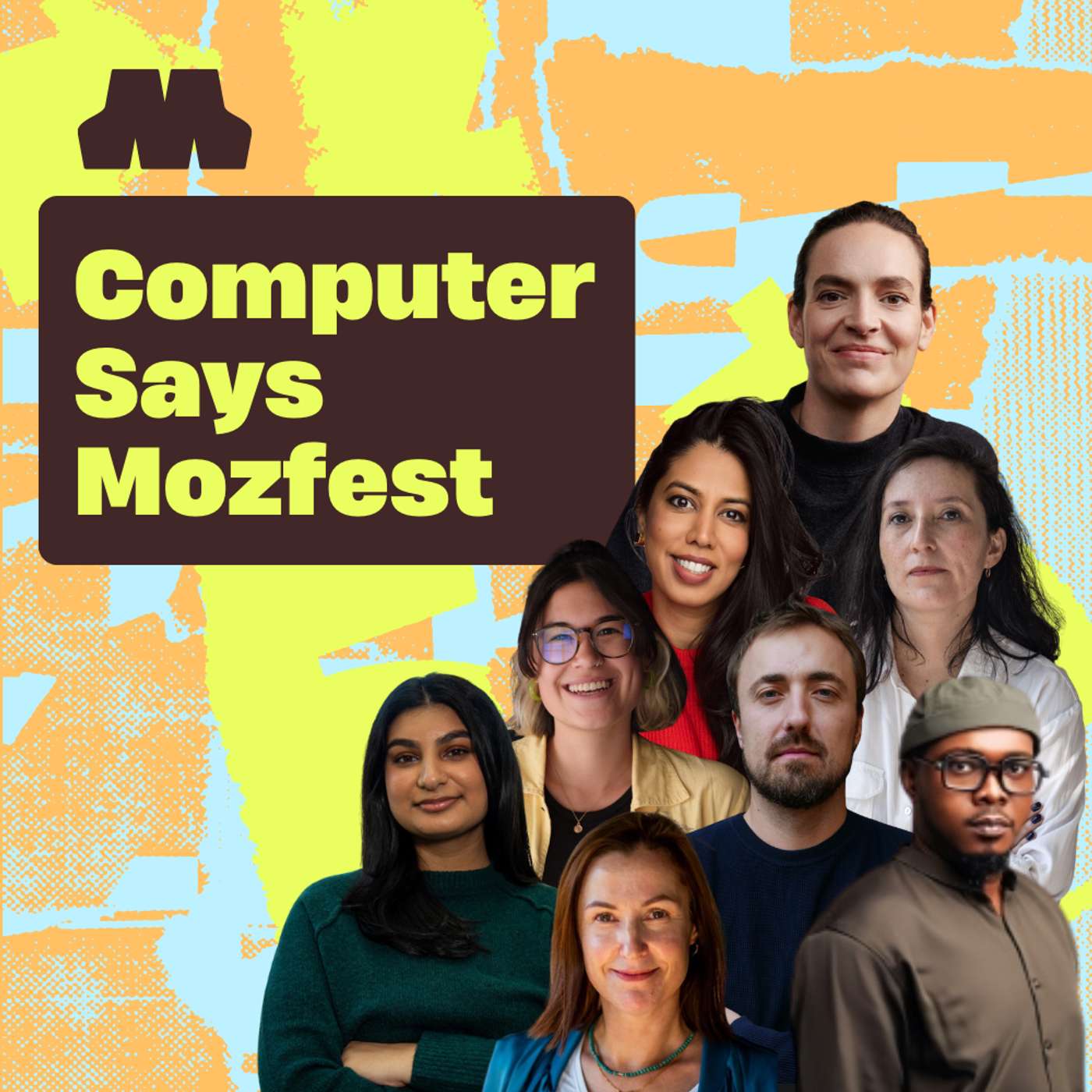Discover Computer Says Maybe
Computer Says Maybe

Computer Says Maybe
Author: Alix Dunn
Subscribed: 15Played: 495Subscribe
Share
© 2024
Description
Technology is changing fast. And it's changing our world even faster. Host Alix Dunn interviews visionaries, researchers, and technologists working in the public interest to help you keep up. Step outside the hype and explore the possibilities, problems, and politics of technology. We publish weekly.
106 Episodes
Reverse
This is the last of our series AI Lingo Bingo Series! We dig into four more co-opted concepts with four more all stars.More like this: Last week’s episode with Meredith Whittaker, Audrey Tang, Abeba Birhane, and Usha RamanathanThis week we’ll hear from Naomi Klein, who will discuss how ‘AI for Climate’ is very much not a thing; Nikhil Dey who shares all the ways powerful actors cosplay at having ‘accountability’; Timnit Gebru who explains that ‘frugal AI’ is something being made novel by the hype & scale of big tech business models; and finally Chinasa Okolo who will help us better understand the complexities of ‘multilateralism’.Further reading & resources:More on Nikhil Dey — social activist and a founding member of the Mazdoor Kisan Shakti Sangathan (MKSS)More on Timnit Gebru — founder of the DAIR instituteMore on Naomi Klein — author and professor of climate justice at the University of British ColumbiaMore on Chinasa Okolo — founder of Technecultura, a research institute focussing on AI governance for global majority countriesThe Guardian’s profile on Nikhil — June 2013More about MKSS involvement in the Campaign for the Right to Information in IndiaThe Screen New Deal — by Naomi Klein, The Intercept, 2020More on the cancellation of the Northern Gateway PipelineGhana NLPWatch this week’s interviews in full on YoutubeRSVP to **The People's Policy: Holding Big Tech Accountable [Livestreamed Conversation + Q&A]** — happening on March 2nd 5:30pm MT**Subscribe to our newsletter to get more stuff than just a podcast — we run events and do other work that you will definitely be interested in!**Post Production by Sarah Myles | Pre Production by Georgia Iacovou
Anthropic’s Claude was used in the military operation to kidnap president Maduro earlier this year. Why? Unclear. Was this legal? Absolutely not.More like this: AI In Gaza: Live from Mexico CitySurprise, surprise: the DoD feels that they should able to use AI models however they want, as long as its lawful — but… was this lawful? They are now threatening to designate Anthropic as a supply chain risk. What does this all mean?For this short, Alix was joined by Amos Toh, senior counsel at the Brennan Centre for Justice, to help us understand why the US defence department and an AI company are arguing about how best to us AI models for dehumanising and unjust military purposes.Further reading & resources:Pentagon's use of Claude during Maduro raid sparks Anthropic feud — Axios, Feb 13Anthropic on shaky ground with Pentagon amid feud after Maduro raid — The Hill, Feb 19US used Anthropic's Claude during the Venezuela raid, WSJ reports — Reuters, Feb 16Pentagon Used Anthropic’s Claude in Maduro Venezuela Raid — WSJ, Feb 15Amos’s Bluesky thread sharing more thoughts on the storyComputer Says Maybe Shorts bring in experts to give their ten-minute take on recent news. If there’s ever a news story you think we should bring in expertise on for the show, please email pod@themaybe.orgPost Production by Sarah Myles | Pre Production by Georgia Iacovou
It’s our second week of playing AI lingo bingo. The summit in India is underway and the air is thick with vague terms that fail to describe the big problems.More like this: Lingo Bingo at the India AI Summit w/ Karen Hao, Joan Kinyua, Chenai Chair, and Rafael GrohmannWith us this week to discuss co-opted terms is Meredith Whittaker on how ‘open source’ cannot meaninfully be applied to AI systems; Audrey Tang on ‘democratisation’, something which is both helped and harmed by AI; Abeba Birhane on everyone’s favourite slogan ‘AI for Good’; and Usha Ramanathan to discuss ‘AI and development’ in the context of the Aadhaar project in India.Further reading & resources:More on Usha Ramanathan — legal researcher and human rights activistMore on Abeba Birhane — principle investigator at the AI Accountability Lab at Trinity College DublinMore on Meredith Whittaker — President of SignalMore on Audrey Tang — Taiwan’s first Digital MinisterDistributional AGI Safety — by Nenad Tomašev et alWatch this week’s interviews in full on Youtube**Subscribe to our newsletter to get more stuff than just a podcast — we run events and do other work that you will definitely be interested in!**Pre Production by Georgia Iacovou | Post Production by Sarah Myles
The AI Impact Summit in India is just a couple of days away and we are ready to drown in vague terms that kinda describe AI, and definitely obscure power. Let’s talk about how to reframe those terms…More like this: The Vaporstate: All Hail Scale at the AI India SummitWe’ve partnered with the AI Now Institute and Aapti Institute to conduct twelve interviews based around the biggest and baddest terms we feel have been co-opted by global summits such as this one. This week we have Karen Hao discussing what it means to be ‘data rich’; Rafael Grohmann on the word ‘sovereignty’ and how it has a hundred definitions; Joan Kinyua on ‘human capital’, a key part of any AI development supply chain; and Chenai Chair, who will discuss ‘linguistic diversity’ — what it is, and what it isn’t.These are just the best parts of the interviews — if you want to go deep and see each of these interviews in full, head to our Youtube channel now.Further reading & resources:More about Rafael Grohmann — Assistant Professor of Media Studies with focus on Critical Platform and Data Studies at the University of TorontoMore about Karen Hao — investigative journalist and author of Empire of AIMore about Chenai Chair — director of the Masakhane African Languages HubMore about Joan Kinyua — president of the Data Labellers AssociationMore on the Due Diligence ActMore about the amendment to the Business Laws Act 2024What does the notion of “sovereignty” mean when referring to the digital? — Stephane Couture and Sophie ToupinBuy The Oracle for Transfeminist Technologies by Sasha Costanza-Chock, Joana Varon, and Clara JulianoWatch this week’s interviews in full on Youtube (link to playlist of interviews)**Subscribe to our newsletter to get more stuff than just a podcast — we run events and do other work that you will definitely be interested in!**Post Production by Sarah Myles | Pre Production by Georgia Iacovou
In The Vaporstate, we have traveled to Brazil, India, and the UK. But what does this look like as a global movement of nations and companies evangelising technology as the key to solving all problems, everywhere?More like this: Paris Post-Mortem (live)For our final instalment of The Vaporstate, Alix is joined by Astha Kapoor and Amba Kak to reflect on the series, and discuss the upcoming AI Action Summit in India. This is the first time this summit is being hosted by a global majority country — will this create new opportunities for civil society to have a say, or is this just yet another chance for tech companies to whisper magic AI spells into the ear of government?The end of The Vaporstate series marks the beginning of another series, made in partnership with AI Now and Aapti Institute: in the run up to the AI Summit, we want to rethink the terms that have been co-opted by government and industry. Terms like ‘sovereignty’, ‘AI for good’, and ‘human capital’. We interviewed twelve experts who unpack how these terms are framed in global summits like this one — watch this space for conversations with Naomi Klein, Meredith Whitaker, and Karen Hao, to name a few.Further reading & resources:Mark Carney’s speech at Davos January 2026Watch the first batch of interviews discussing co-opted terms used in and around the upcoming summit**Subscribe to our newsletter to get more stuff than just a podcast — we run events and do other work that you will definitely be interested in!**Post Production by Sarah Myles | Pre Production by Georgia Iacovou
What does US tech billionaire Larry Ellison get when he gives the Tony Blair Institute hundreds of millions of dollars?More like this: The Vaporstate: ID in IndiaIn our third installment of The Vaporstate, we are joined by two journalists from Lighthouse Reports, who tell all about their investigation into the questionable relationship between Oracle founder Larry Ellison, the Tony Blair Institute, and the current Labour government. What is the Tony Blair Institute and why did Ellison give them millions of dollars? What does any of this have to do with national IDs and NHS data? And if you’re a government official somewhere around the world, and TBI comes knocking to sell you an AI future what you should do…?Further reading & resources:Britain must treat tech giants like nation states — The Times, 2024Backlight — Lighthouse’s monthly podcastBlair and the Billionaire — Lighthouse Reports 2025Inside The Tony Blair Institute — Lighthouse journalists Peter Geoghegan and May Bulman are interviewed by The New StatesmanDo you have a story that you think is missing from public discourse? Here’s how to get in touch with LighthouseQuestions Alix proposed for the Sundance panel — as mentioned in the intro.**Subscribe to our newsletter to get more stuff than just a podcast — we run events and do other work that you will definitely be interested in!**Post Production by Sarah Myles | Pre Production by Georgia Iacovou
What happens when the very way you prove who you are is stolen by someone else? And what happens when a country stands up to Meta and builds their own.More like this: The Vaporstate: ID in IndiaFor episode two of The Vaporstate, Alix is joined by Rafael Zanatta and Luã Cruz. Rafa walks us through the incredible story of how his mom’s digital ID was stolen and a clever bank teller stopped someone from halfway across the country from stealing her savings. Luã ****shares the geopolitical battles that prevented a Meta takeover of Brazilian peer-to-peer payment and the roll out of a frictionless financial transaction system called PIX.Further reading & resources:Brazil Has The World’s Most Accessed Citizen Services Platform — Forbes, March 2024More about Data Privacy BrazilThe Tyranny of Convenience by Tim Wu — New York Times, 2018Works by South Korean philosopher Byung-Chul HanLula pushing back against Trump’s tariffs — AP, September 2025More about The Brazilian Institute for Consumer Protection**Subscribe to our newsletter to get more stuff than just a podcast — we run events and do other work that you will definitely be interested in!**Post Production by Sarah Myles | Pre Production by Georgia Iacovou
Our first exploration of The Vaporstate takes us to India, home of Aadhaar: a mammoth digitisation project that charts a path from technical solution for public service delivery, through mission creep and popular opposition, to a knotty but inescapable part of Indian existence today.More like this: Is Digitisation Killing Democracy? w/ Marietje SchaakeJoining Alix for part one of The Vaporstate is Mila Samdub, Astha Kapoor, and Usha Ramanathan. Together they discuss the conception of Aadhaar, India’s key piece of digital public infrastructure, and how it morphed from a simple digital ID to something that unifies payments, phone plans, and biometrics.Further reading & resources:More about Usha Ramanathan — legendary lawyer and activist who has been pushing back on the Aadhaar programme for over a decadeMore about Astha Kapoor — co-founder of the Aapti InstituteMore about Mila Samdub — designer, writer, and CyberBRICS Fellow at the Center for Internet and Society, FGV RioComputer-vision research powers surveillance technology — by Abeba Birhane et al, Nature JournalAadhaar 2.0 workshopWalmart Takes Ownership of PhonePe from Flipkart — The Times of India, 2022Walmart invests $200 million in Indian mobile payments giant PhonePe — TechCrunch, 2023Google launches India mobile payments app Tez — BBC, 2017Identity Verification Standards in Welfare Programs: Experimental Evidence from India — Karthik Muralidharan et al, National Bureau of Economic Research, 2021Aadhaar: Costs of Digital Red Tape — Reetika Khera & Amod Moharil, Economic & Political Weekly, 2024Overload, Creep, Excess – An Internet from India — Nafis Hasan et al, Institute of Network Cultures, 2022Aadhaar: A Biometric History of India's 12 Digit Revolution — Shankkar Aiyar, Westland, 2017**Subscribe to our newsletter to get more stuff than just a podcast — we run events and do other work that you will definitely be interested in!**Post Production by Sarah Myles | Pre Production by Georgia Iacovou
This is The Vaporstate, a new series on the worldwide government bonanza of enthusiastic digitisation: Digital IDs, digital payment systems, massive data exchange platforms. What are the every-day impacts of these digitisation projects, and why now?The Vaporstate is a deep exploration of digital public infrastructure: we will hear from the journalists, civil society groups, and lawyers from around the world who are watching these projects develop, and how this digital scaffolding shapes our lives.Post Production by Sarah Myles | Pre Production by Georgia Iacovou
Infinite AI slop means we are moving away from our the age of information into what Eryk Salvaggio calls ‘the age of noise’.More like this: Straight to Video: From Rodney King to Sora w/ Sam GregoryWe’re replaying five deep conversations over the Christmas period for you to listen to on your travels and downtime — please enjoy!What happens if you ask a generative AI image model to show you what Picasso’s work would have looked like if he lived in Japan in the 16th century? Would it produce something totally new, or just mash together stereotypical aesthetics from Picasso’s work, and 16th century Japan? Can generative AI really create anything new if it can only draw from existing imagery?Further reading:What I Read About AI in 2025 — by Eryk SalvaggioVisit Eryk’s WebsiteCybernetic Forests — Eryk’s newsletter on tech and culturePost Production by Sarah Myles | Pre Production by Georgia Iacovou
Welcome to the final boss of scams in the age of technology: EnshittificationMore like this: Nodestar: The Eternal September w/ Mike MasnickWe’re replaying five deep conversations over the Christmas period for you to listen to on your travels and downtime — please enjoy!Is platformisation essentially just an industrial level scam? We will deep-dive the enshittification playbook to understand how companies lock users into decaying platforms, and get away with it. Cory shares ideas on what we can do differently to turn tide. Listen to learn what a ‘chickenised reverse centaur’ is…Further reading & resources:Buy Enshittifcation now from Verso Books!Picks and Shovels by Cory DoctorowOn The Media series on EnshittificationPluralistic — Daily Links and essays by Cory DoctorowConservatism Considered as a Movement of Bitter Rubes — Cory on why conservatism creates a friendly environment for scamsHow I Got Scammed — Cory on his personal experiences of being scammedAll of Cory’s booksAll (Antitrust) Politics Are Local — the entry to Pluralistic that Cory wrote on the day of recording**Subscribe to our newsletter to get more stuff than just a podcast — we run events and do other work that you will definitely be interested in!**Post Production by Sarah Myles | Pre Production by Georgia Iacovou
Litigator David Seligman describes how big tech companies act brazenly as legal bullies to extract wealth and power from the working class in the US.More like this: The Human in the Loop: The AI Supply ChainWe’re replaying five deep conversations over the Christmas period for you to listen to on your travels and downtime — please enjoy!Alix and David talk about legal devices such as forced arbitration and monopolistic practices like algorithmic price fixing and wage suppression — and the cases that David’s team are bringing to fight these practicesFurther reading & resourcesSeligman for Attorney General ColoradoTowards Justice California drivers lawsuitEichman in Jerusalem: A Report on the Banal State of Evil by Hannah ArendtThe Dual State by Ernst FraenkelProhibiting Surveillance Prices and Wages by Towards JusticeGill VS Uber — class action led by Towards Justice**Subscribe to our newsletter to get more stuff than just a podcast — we run events and do other work that you will definitely be interested in!**Post Production by Sarah Myles | Pre Production by Georgia Iacovou
Reporting on the tech industry proves a huge challenge due to how opaque it all is — Empire of AI author Karen Hao talks us through her investigative methods in a conversation from November 2024.More like this: Net 0++ AI Thirst in a Water-Scarce World w/ Julie McCarthyWe’re replaying five deep conversations over the Christmas period for you to listen to on your travels and downtime — please enjoy!AI companies are flagrantly obstructive when it comes to sharing information about their infrastructure — this makes reporting on the climate injustices of AI really hard. Karen shares the tactics that these companies use, and the challenges that she has faced in her investigative reporting.Further reading:Buy Empire of AI by Karen HaoMicrosoft’s Hypocrisy on AI by Karen HaoAI is Taking Water from the Desert by Karen HaoPost Production by Sarah Myles | Pre Production by Georgia Iacovou
A replay of our conversation with Kate Sim, on the state of child safety online.More like this: Dogwhistles: Networked Transphobia OnlineWe’re replaying five deep conversations over the Christmas period for you to listen to on your travels and downtime — please enjoy!Child safety is a fuzzy catch-all concept for our broader social anxieties that seems to be everywhere in our conversations about the internet. But child safety isn’t a new concept, and the way our politics focuses on the spectacle isn’t new either.To help us unpack this is Kate Sim, who has over a decade of experience in sexual violence prevention and response and is currently the Director of the Children’s Online Safety and Privacy Research (COSPR) program at the University of Western Australia’s Tech & Policy Lab. We discuss the growth of ‘child safety’ regulation around the world, and how it often conflates multiple topics: age-gating adult content, explicit attempts to harm children, national security, and even ‘family values’.Further reading & resources:On COSPRs forthcoming paper on the CSAM detection ecosystem. Here is a fact sheet with ecosystem map based on it: https://bit.ly/cospr-collateralOn CSAM bottleneck problem: https://doi.org/10.25740/pr592kc5483IBCK episode on the Anxious Generation: https://pod.link/1651876897/episode/47a8aa95c83be96b044dcb3f4e43d158Child psychology expert Candace Odgers debunking Jonathan Haidt’s claims in real-time here: https://tyde.virginia.edu/event/haidt-odgers/)A primer on client-side scanning and CSAM from Mitali Thakor: https://mit-serc.pubpub.org/pub/701yvdbh/release/2On effective CSA prevention and scalability: https://www.prevention.global/resources/read-full-scalability-report**Subscribe to our newsletter to get more stuff than just a podcast — we run events and do other work that you will definitely be interested in!**Post Production by Sarah Myles | Pre Production by Georgia Iacovou
Before we break for the year we wanted to reflect on what the podcast brought us in 2025, and what we want to see for 2026This week Alix is joined by two members of The Maybe team: Prathm Juneja and Georgia Iacovou. We discuss our favourite episodes from the year while making it clear we love all episodes equally. And also this is not your standard clip show. We ask ourselves what we learned, why it was important to us, and what we are hungry for in 2026.Featured episodes:Is Digitisation Killing Democracy? w/ Marietje SchaakeNodestar: Building Blacksky w/ Rudy FraserRegulating Privacy in an AI Era w/ Carly KindTo be Seen and Not Watched w/ Tawana PettyThe Taiwan Bottleneck w/ Brian ChenGotcha! How MLMs Ate the Economy w/ Bridget ReadAlso mentioned in this episode: AI in Gaza Live from Mexico City**Subscribe to our newsletter to get more stuff than just a podcast — we run events and do other work that you will definitely be interested in!**Post Production by Sarah Myles | Pre Production by Georgia Iacovou
The Onion CEO Ben Collins has successfully turned political satire into a sustainable business. He explains why humorous messaging is important to understand times like these — and why he’s dead serious about buying Infowars.Head to our feed for more conversations from MozFest with Abeba Birhane, Audrey Tang, and Luisa Franco Machado.Further reading & resources:Read The Onion, America’s finest news source, if you don’t already…The Onion to buy Infowars**Subscribe to our newsletter to get more stuff than just a podcast — we run events and do other work that you will definitely be interested in!**Post Production by Sarah Myles | Pre Production by Georgia Iacovou
Audrey Tang has some big ideas on how we can use collective needs to shape AI systems — and avoid a future where human life is seen as an obstacle to paper clip production. She also shares what might be the first actual good use-case for AI agents…Further reading & resources:6-Pack of Care — a research project by Audrey Tang and Caroline Green as part of the Institute for Ethics in AIMore about Kami — the Japanese local spirits Audrey mentions throughout the conversationThe Oxford Institute for Ethics in AI**Subscribe to our newsletter to get more stuff than just a podcast — we run events and do other work that you will definitely be interested in!**Post Production by Sarah Myles | Pre Production by Georgia Iacovou
You can’t build a digital rights movement if you don’t know what you’re fighting for. Luisa says that we’re in a crisis of imagination, and that participation — the non-performative kind — is one big way out of this.Further reading & resources:Learn more about EquilabsFollow Luisa on Instagram — sorry, email is too ‘analog’Check out her Linktree**Subscribe to our newsletter to get more stuff than just a podcast — we run events and do other work that you will definitely be interested in!**Post Production by Sarah Myles | Pre Production by Georgia Iacovou
Earlier this year Abeba Birhane was asked to give a keynote at the AI for Good Summit for the UN — and at the eleventh hour they attempted to censor any mention of genocide in Palestine, and their Big Tech sponsors. She was invited to give her full uncensored talk at Mozfest.Further reading & resources:Abeba’s blog post on the UN censoring her talk on AIMore about AbebaMore about The AI Accountability Lab**Subscribe to our newsletter to get more stuff than just a podcast — we run events and do other work that you will definitely be interested in!**Post Production by Sarah Myles | Pre Production by Georgia Iacovou
Mozilla Festival 2025. Barcelona. Three days in a bonanza of interesting people, ideas, and technology politics. These were our highlights!More like this: FAccT 2025 episodes one and twoThis is an extra special episode packed full of conversations and on-site impressions of the biggest Mozfest we’ve had in years. This year Alix moderated three panels, ran an AMA, and even hosted a game show — and somehow also had time to record all of this, for your pleasure.Included in this episode is:A preview of Exposing and Reshaping the Global Footprint of Data Centers, with independent journalist Pablo Jiménez Arandia, Tessa Pang (impact editor for Lighthouse Reports), and Paz Peña (Mozilla Fellow, and founder of the Latin American Institute of Terraforming.)A conversation with Hana Memon, developer at Gen Z for ChangeA conversation with creative technologist Malik Afegbua, on his project The Elder SeriesNabiha Syed and Helen Turvey will also reflect on how this Mozfest went, and what they hope to see for the future of the festival in the coming years**Subscribe to our newsletter to get more stuff than just a podcast — we run events and do other work that you will definitely be interested in!**Post Production by Sarah Myles | Pre Production by Georgia Iacovou


